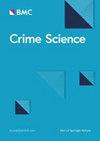网络空间(以及与之相伴的网络犯罪)如何?对 Farrell 和 Birks "网络犯罪导致犯罪率下降吗?
IF 2.6
Q1 CRIMINOLOGY & PENOLOGY
引用次数: 0
摘要
在本文中,我们对 Farrell 和 Birks 将网络犯罪的出现作为犯罪率下降的无效解释的说法提出质疑。作为对 "网络犯罪假说 "的替代,我们提出了两个非排他性的假说,强调网络空间作为一种将犯罪机会从物理空间转移到虚拟空间的环境的重要作用,这反映了犯罪趋势。第一个假设认为,由于电子游戏和在线休闲活动等因素,许多青少年在家中度过了更多的时间,这可能对青少年犯罪率的下降产生了影响。第二个假设指出,网络空间的出现导致机会从物理空间转移到网络空间。这可能会导致与互联网有关的财产犯罪活动增加,从而对实体犯罪造成损害,而这不会反映在统计数据中。这两个前提都得到了经验证据的支持。本文章由计算机程序翻译,如有差异,请以英文原文为准。
What about cyberspace (and cybercrime alongside it)? A reply to Farrell and Birks “Did cybercrime cause the crime drop?”
In this paper we question Farrell and Birks’ assertion of the emergence of cybercrime as an invalid explanation for the crime drop. Alternatively to the “cybercrime hypothesis”, we propose two non-exclusive hypotheses that highlight the essential role of cyberspace as an environment that has shifted criminal opportunities from physical to virtual space, which reflects on crime trends. The first hypothesis posits that the more time spent at home by many young people due to video games and online leisure activities, among other factors, could have had an impact on the juvenile crime drop. The second hypothesis states that the appearance of cyberspace has led to a shift in opportunities from physical space to cyberspace. This could have led to an increase in property-related criminal activity connected to the Internet to the detriment of physical crime which would not be reflected in the statistics. Both premises are supported by empirical evidence.
求助全文
通过发布文献求助,成功后即可免费获取论文全文。
去求助
来源期刊

Crime Science
Social Sciences-Cultural Studies
CiteScore
11.90
自引率
8.20%
发文量
12
审稿时长
13 weeks
期刊介绍:
Crime Science is an international, interdisciplinary, peer-reviewed journal with an applied focus. The journal''s main focus is on research articles and systematic reviews that reflect the growing cooperation among a variety of fields, including environmental criminology, economics, engineering, geography, public health, psychology, statistics and urban planning, on improving the detection, prevention and understanding of crime and disorder. Crime Science will publish theoretical articles that are relevant to the field, for example, approaches that integrate theories from different disciplines. The goal of the journal is to broaden the scientific base for the understanding, analysis and control of crime and disorder. It is aimed at researchers, practitioners and policy-makers with an interest in crime reduction. It will also publish short contributions on timely topics including crime patterns, technological advances for detection and prevention, and analytical techniques, and on the crime reduction applications of research from a wide range of fields. Crime Science publishes research articles, systematic reviews, short contributions and theoretical articles. While Crime Science uses the APA reference style, the journal welcomes submissions using alternative reference styles on a case-by-case basis.
 求助内容:
求助内容: 应助结果提醒方式:
应助结果提醒方式:


